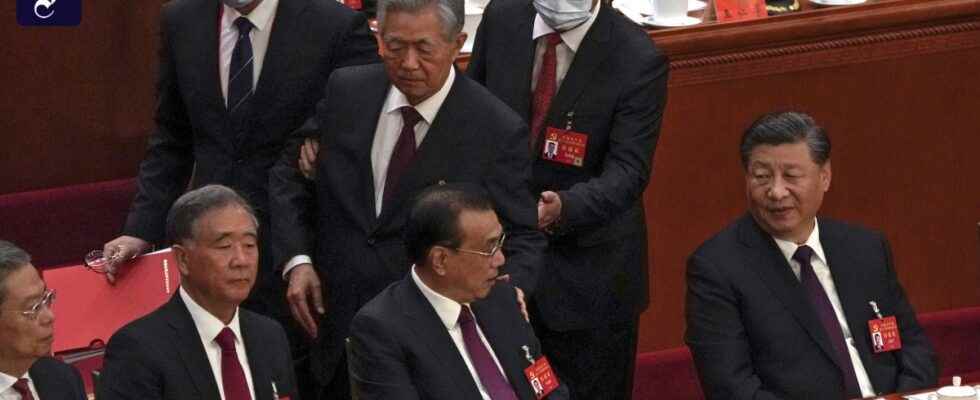IThere is a great deal of chair-sharing in the Chinese Communist Party’s top leadership. Four of the seven members of the Politburo Standing Committee are resigning. These include Premier Li Keqiang and Wang Yang, who was previously thought to be one of his successors. This is remarkable because, unlike the other two politicians who are leaving, they have not yet reached the age of 68.
Her early retirement suggests that leader Xi Jinping has prevailed in negotiations to replace the most powerful body and is likely to fill all four vacant posts with loyalists. There will be certainty about this on Sunday when the new Standing Committee presents itself to the public. The changes at the top emerge from the list of newly elected members of the 205-strong Central Committee on Saturday. Only eleven women belong to it.
Both Li Keqiang and Wang Yang are considered more market-friendly politicians who take different positions on economic and corona policy than Xi Jinping. Her departure makes it clear that Xi rules the party unchallenged and leads it with an iron fist. Li will remain prime minister until March. The ranking of the new Standing Committee should reveal who will be his successor on Sunday.
Hu Jintao taken away by two guards
During the closing session of the seven-day party congress, an unusual scene took place on Saturday. Xi’s predecessor, Hu Jintao, was led out of the hall by two hall guards, apparently against his will. He seemed surprised and reluctantly followed the two men. The Chairman of the People’s Congress, Li Zhanshu, seemed to want to offer assistance to the elderly Hu. However, he was held back by Wang Huning, the party’s chief ideologue. Other officials stared straight ahead as if unaware of what was happening.
As the 79-year-old former leader was pulled away by the arm, he turned to Xi, who barely turned to look at him. Premier Li Keqiang, whose protégé Hu was, gave a friendly pat on the back as he left.
The reason why he should leave the room was initially unclear and will probably remain so. It cannot be ruled out that the background is Hu’s state of health. There have been rumors for a long time that he should suffer from Parkinson’s disease. The scene was not shown on Chinese state television. There was no word of any kind on the Chinese Internet. The incident happened just as the international press was late being allowed into the room. Foreign journalists who wanted to attend the event had to go into hotel quarantine from Wednesday.
State television did not show live images
Overall, state television did not show live images of the final session of the party congress, even though it was the most important political event in five years and the broadcaster had announced live coverage. Instead, three hours of conversations with studio guests and reports on the political situation in Italy and Great Britain were shown. The party may not have been entirely sure that the decisions were unanimous.
Changes to the party statutes also further consolidated Xi’s position of power. Some of his ideological concepts have been included, as well as the term “fighting spirit” with which Xi Jinping regularly calls on the party and the state apparatus to stand up to foreign critics. The resolution to take decisive action against Taiwan’s independence was also included in the statutes. This underscores Xi’s goal of unifying with the island, using military force if necessary.
Contrary to what some observers had expected, Xi Jinping initially did not receive a new title. Also, the name of his ideology was not shortened to Xi Jinping Thought. That would have symbolically placed him on the same level in party history as the founder of the state, Mao Zedong.
